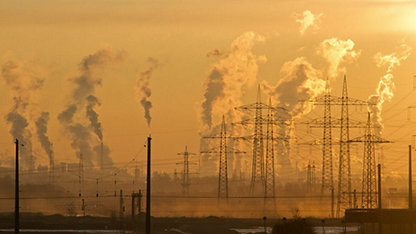Following from last week’s debrief of week one of COP26, this year’s Conference of the Parties in Glasgow, here what’s the profession needs to know from the second week of negotiations.
Adaptation and finance
The UK has pledged £274 million to ‘help countries across Asia Pacific to better plan and invest in climate action, improve conservation and deliver low carbon development’. The Met Office, the UK’s weather office, predicts that 1bn people will suffer extreme heat stress in their homes, and workplaces if global warming reaches just two degrees. The expertise of the profession will only continue to be in demand, as innovative solutions will be required to adapt the built environment to continue to be habitable, especially in the Global South.
Investment in electric vehicle (EV) charging
President Joe Biden has set aside $7.5 billion of his $1.2tn infrastructure bill to create a nationwide network of EV charging stations across the USA, similarly the UK Prime Minister Boris Johnson announced the extension of phasing out new petrol and diesel cars by 2030 to HGVs, which will now have to be zero emissions by 2040. This could present opportunities, and challenges for landlords of commercial and residential buildings as Electric Vehicle charging points are likely to become more in demand by tenants. Availability of EV charging could also form part of the ESG strategy of commercial property owners, our updated guidance note on ESG and Sustainability in the Valuation of Commercial Property offers more insight into every day commercial valuation and the wider ESG and sustainability landscape.
US-China deal on emissions
The USA and China announced that they will be working together to cut emissions. In a press conference on Wednesday 10 November, John Kerry, United States Special Presidential Envoy for Climate declared in a press conference that: ‘co-operation is the only way to get this job done.’ The size of these two economies will unlock significant financial flows, and will require the insight of experts working in the built environment to ensure that measuring carbon becomes integral in the lifecycle of projects.
Land and geo-spatial mapping
Ordnance Survey has committed to help support the Global South to improve geospatial data capacity, to better monitor the environment, inform policy and predict climate change. The geospatial pavilion ended with keynote speeches from Al Gore and Steven Ramage FRICS giving the closing address. While there has been frustration from land-based NGOs that land tenure and ownership security have not been central to forestry announcements, this has been tempered with plaudits as biodiversity and natural capital gain traction within the overarching finance negotiations.
RICS at COP26
RICS hosted a number of events in Scotland during the conference. RICS Construction Lead Alan Muse presented as part of the University of Glasgow’s Built Environment and Net Zero Conference, discussing the role of RICS standards in the measurement of carbon in the built environment. See the summary on Twitter. On commercial property, we partnered with the Space for Architecture, Carbon and the Environment (SpACE) – a coalition of organisations including the Scottish Government and City of Edinburgh Council – to run a panel discussion on the role of the commercial property sector in transitioning to net zero. See the roundup on LinkedIn.












